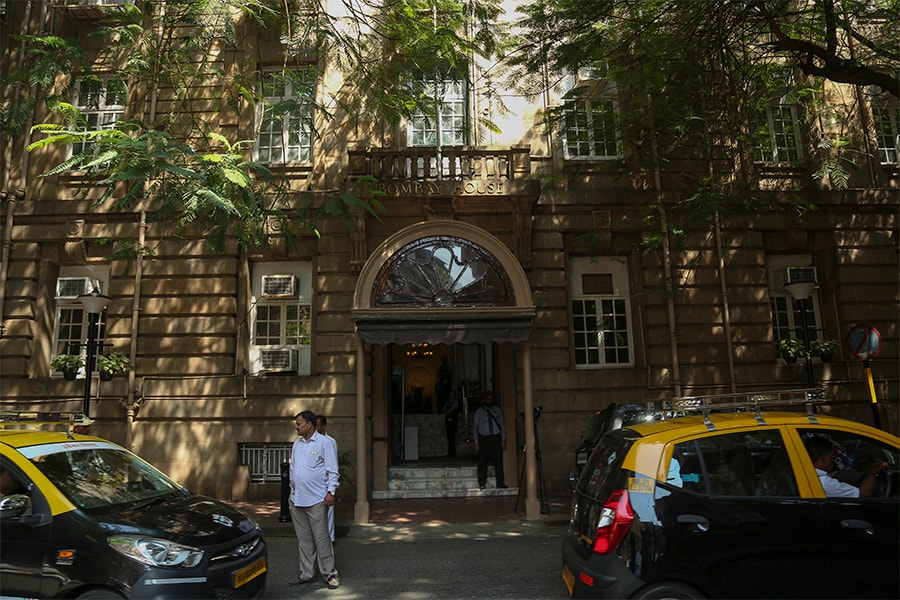Delhi High Court clears deck for Tata-Docomo dispute resolution
The court allowed Tata Sons to pay NTT Docomo, a $1.17 billion arbitration award, which was opposed by the RBI



Bombay House serves as the headquarters of the Tata Group
Image: Joshua Navalkar
In a development that will allow closure of one of the long-pending cross-border corporate disputes in India, the Delhi High Court cleared the decks on Friday for Tata Sons to pay an arbitration award to Japanese firm NTT Docomo, which seeks to exit its telecom partnership with the former in India.
The Delhi High Court rejected the Reserve Bank of India’s (RBI) intervention in the matter. India’s central bank was opposed to the payment of the arbitration award of $1.17 billion to NTT Docomo, on the grounds that it violated India’s Foreign Exchange Management Act (FEMA) of 1999. The court’s verdict, if it remains unchallenged and doesn’t get upturned by the apex court, may also serve as important legal precedence for all such other cases covering cross-border business partnerships in India, especially those that are in arbitration.
In 2016, the London Court of International Arbitration (LCIA) had awarded NTT Docomo an arbitration award of $1.17 billion, payable by Tata Sons – the flagship holding company of the salt-to-software Tata group. NTT Docomo had moved the LCIA as it felt that the Indian conglomerate was dragging its feet in honouring a contractual commitment made in 2009, when the Japanese firm had entered the Indian telecom market by investing in Tata Teleservices (TTSL).
NTT Docomo had acquired a 26.4 percent stake in TTSL in 2009 for around Rs14,500 crore. Over the years, the company lost out to bigger rivals in the Indian telecom space, which came to be characterised by intense competition leading to declining tariffs. NTT Docomo had entered into an agreement with Tata Sons whereby the former would be allowed to exit its investment at either its fair market value or half of its original investment, whichever was higher.
In 2014, Docomo announced its intention to exit India and asked Tata Sons to honour its commitment. The principal holding firm of the $103 billion-Indian business house, under the leadership of then chairman Cyrus Mistry, was of the opinion that it was unable to pay the sum to NTT Docomo since it fell afoul of RBI guidelines. The Tata group’s stance led to NTT Docomo moving for arbitration in London and subsequently move thae Delhi High Court to seek enforcement of the arbitration award. Meanwhile, the Tata group, had deposited the sum in question with the Delhi High Court as a measure of good faith to demonstrate its willingness to meet its obligations, if Indian regulation allowed it.
By February 2017, a lot had changed at Tata Sons, including its chairman, following an acrimonious corporate battle that saw Mistry being ousted from Tata Sons. Under the leadership of a new chairman, N Chandrasekaran, the House of Tata announced in February that it had reached an agreement on the terms of settlement with NTT Docomo and had approached the Delhi High Court to ratify and allow the settlement.
The RBI remained opposed to the settlement that would see Tata Sons pay $1.17 billion and requested the court to disallow this arrangement. However, the Delhi High Court remained unsatisfied with RBI’s grounds of opposition and gave a verdict in Tata Sons and NTT Docomo’s favour.
Unless RBI appeals the Delhi High Court’s judgment in the Supreme Court, Tata Sons intends to pay NTT Docomo and close the matter. Lack of closure of the NTT Docomo issue was one of the main thorny issues in the relationship between Mistry and Tata Sons’ main shareholders, including the Tata Trusts (which owns 66 percent in Tata Sons). The commitment to NTT Docomo was made under the leadership of Tata Trusts’ chairman Ratan Tata - who was then the Tata group chairman – and his successor’s inability to find an amicable solution to the imbroglio was seen as a deliberate attempt to undermine his legacy.
Mistry’s camp, however, has maintained that the former Tata Sons chairman was keen on settling the matter, but his hands were tied due to the regulatory restrictions. A source close to Ratan Tata had told Forbes India earlier that, if Mistry wanted, a solution could have been worked out to increase the fair value of TTSL’s shares through the infusion of fresh equity by Tata Sons to pare debt and some associated accounting treatment by Tata Sons. A source close to Mistry had stated that Mistry was working on implementing a similar solution and bringing TTSL back to better financial health, when he was sacked as group chairman.
In a statement issued late Friday evening, Tata Sons said that it welcomed the Delhi High Court order, which found nothing “contrary to any Indian law” in the shareholders’ agreement and consent terms between Tata Sons and NTT Docomo. The Tata Sons statement also said that the court observed that Tata Sons honouring its commitment “will have a bearing on its goodwill and reputation in the international arena.”
“It will indubitably have an impact on the foreign direct investment inflows and the strategic relationship between the countries where the parties to a contract are located,” the court order stated.
First Published: Apr 28, 2017, 16:12
Subscribe Now